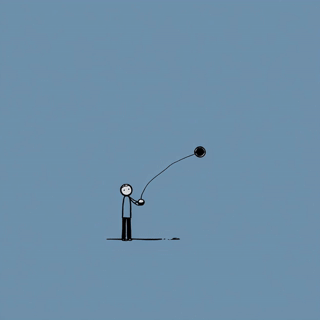Thursday's Three Things
Three Things. On a Thursday.
With opening faculty meetings kicking off next week here at EA, summer’s twilight is officially upon us. We hope your summer offered plenty of room for creative destruction, growth, and renewal—central elements of our Ecocycle Planning ethos. Next week, we return to our regular school-year rhythm with What Do You Need Wednesday, ready to support you in a fresh academic year full of possibility.
Onto this summer’s final Thursday’s Three Things below!
Thursday’s Three Things
When Everything is a Remix, What's Yours?—Kirby Ferguson's recent video, "AI Is Remixing Everything We’ve Ever Made. Here’s What That Means," offers a compelling, humanistic exploration of how artificial intelligence is reshaping creativity by accelerating the cycle of remixing ideas. Ferguson thoughtfully unpacks essential questions about authenticity, discernment, attribution, and authorship, emphasizing our responsibility to guide students in navigating these nuanced ethical landscapes. For teachers, it’s an opportunity to engage students directly: If everything is a remix, when does something become genuinely yours—and how do you ethically acknowledge the sources that inspired it? In an era where generative AI tools are commonplace, this question invites students to consider their own roles as creators, collaborators, and critical thinkers in a rapidly evolving digital world.
Participatory Learning, Remixed: Students as Authors, AI as Partner—Speaking of creation and remixing, we loved the inherent potential in David Wiley's latest project, creatively blending Open Educational Resources (OER) with generative AI. His Generative Textbooks platform offers teachers and students an innovative way to collaboratively build, remix, and refine educational materials. What particularly resonates is the deeply participatory spirit: students aren't passive recipients; they’re active co-creators, shaping resources and reflecting intentionally on their learning process. It's a powerful invitation for educators to rethink how knowledge creation happens—and who gets to take part.
Icebreakers That Actually Matter: Two Questions, Endless Insight—People feel a certain way about icebreakers—there's often hesitation, eye-rolling, or even dread. But what if icebreakers could do more than simply break the awkward silence? With the school year beginning, we love this thoughtful example from Robert Talbert’s Grading for Growth Substack. He shares two simple questions that transform the traditional icebreaker into a meaningful reflection on learning and growth: What is something you're good at doing? and How did you get good at it? These questions not only humanize students but also tap into deeper understandings about mastery, persistence, and the value of sustained practice. It's an elegant reminder that students already possess powerful stories of learning—we just need to ask.
Your Weekly Moment of Zen
The Weekly Moment of Zen offers adjacent inspiration amidst the noise, gently guiding us toward fresh perspectives. Speaking of mastery and creativity (with a healthy dose of deliberate practice), this recent clip of now 8-time YoYo World Champion Hajime Miura is mesmerizing—both in its artistry and effortless complexity. While YoYo excellence may seem distant from classroom practice, it beautifully illustrates the powerful interplay of remixing, dedication, feedback loops, and growth we've explored this week.
If you've been here awhile, you know we can't resist some adjacent inspiration to spark new thinking.
Thus concludes this summer’s T3—we’ll see you back next week for our regular school-year rhythm, starting with What Do You Need Wednesday.


